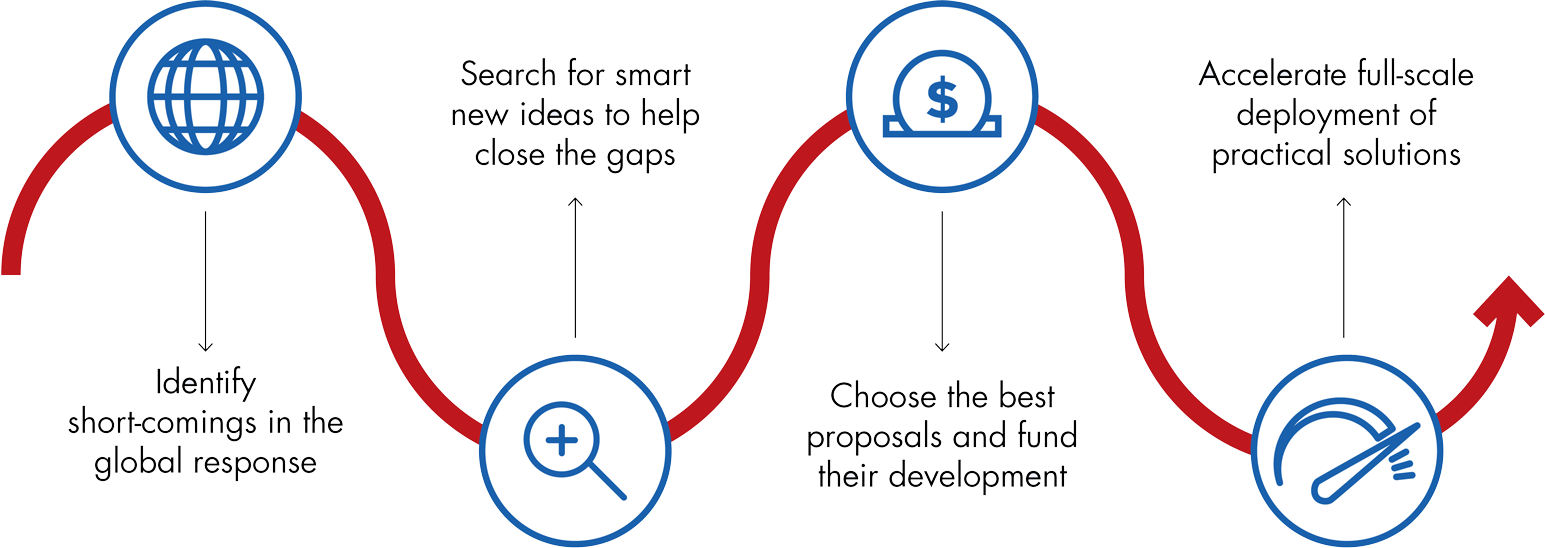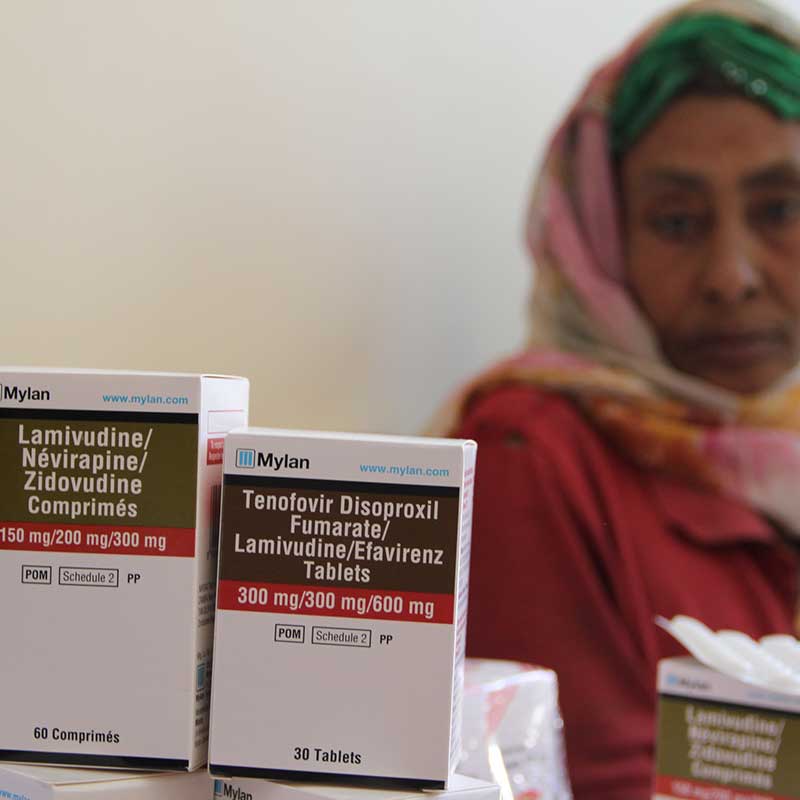UNITAID: addressing market problems in AIDS, TB and Malaria
UNITAID is engaged in finding new ways to prevent, treat and diagnose HIV/AIDS, tuberculosis and malaria more quickly, more cheaply and more effectively. It takes game-changing ideas and turns them into practical solutions that can help accelerate the end of the three diseases. Established in 2006 by Brazil, Chile, France, Norway and the United Kingdom to provide an innovative approach to global health, UNITAID plays an important part in the global effort to defeat HIV/AIDS, tuberculosis and malaria, by facilitating and speeding up the availability of improved health tools, including medicines and diagnostics.
UNITAID identifies health solutions that show promise and invests in them to establish their viability so that partner organisations can then make them widely available.
By helping to fast-track access and reduce costs of new more effective medicines, technologies and systems UNITAID can maximize the impact of every dollar spent to overcome these lethal diseases.
Many innovations championed by UNITAID and carried forward by our partners have had a big impact. Nearly 13 million people living with HIV are now on antiretroviral treatment, up from just 1.6 million in 2006, largely through a tenfold price reduction in medicines; there has been a 30 per cent year-on-year increase in detection of drug resistant TB in 2014, mostly due to the expanded use of innovative diagnostics; and malaria mortality has been halved since 2000, through better access to effective anti-malarial treatments and preventative measures such as mosquito nets.
UNITAID has developed a new strategy for 2017-2021 and the NGO delegation has been, and continues to closely engage with this process.
How UNITAID operates
UNITAID collaborates with global health partners and governments to:

What UNITAID addresses
UNITAID fast tracks introduction of new health solutions by overcoming:

Breakthroughs in fighting disease
UNITAID has actively contributed to:

UNITAID’s new operating model
How projects are approved

Why UNITAID matters for people living with HIV or affected by TB or Malaria
People living with and affected by HIV/AIDS, TB and malaria must have access to the right medicines, tests and products that prevent new infections. They must be:
- available in sufficient quantities
- quality assured
- affordable
- adapted to the needs of the person
- delivered to the right person at the right time
However, the markets for health products often fail to deliver what people need.
A healthy market is one where well-adapted products of assured quality are sold at a reasonable and affordable price; where sufficient quantities are produced and where stock lasts; and where the market adapts as needed over time. Competitive markets (those with multiple suppliers) are almost always healthier than monopolies.
UNITAID analyses markets, identifies any problems and assesses whether they can be fixed. UNITAID then funds projects that have a lasting market impact so that markets stay competitive and healthy over time, benefiting people living with and affected by HIV/AIDS, TB and malaria.

